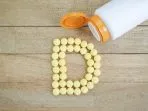Nutritionists are against completely eliminating cholesterol foods from the diet (and we’re not kidding). They don’t want to give you a heart attack – quite the opposite. 7 Facts You Didn’t Know About Cholesterol
The boom in low-fat foods, the complete exclusion of animal fats from the diet, control of cholesterol levels in the blood ─ all this is being done to prevent cardiovascular diseases and obesity. But is cholesterol really dangerous for our health? If you completely exclude foods containing saturated fat from your menu, you most likely do not know the following facts. Mikhail, a psychotherapist, candidate of medical sciences, author of a patented method for correcting eating behavior and weight loss, member of the Institute of Functional Medicine (IFM, USA), told us about them. 7 Facts You Didn’t Know About Cholesterol

#1 – 7 facts about cholesterol that you didn’t know (or didn’t take seriously)
Fact 1. Cholesterol is essential for staying healthy.
He is not just some kind of ballast that needs to be gotten rid of! It is also a building material for cell membranes and steroid hormones (in particular, sex hormones). Cholesterol is also involved in regulating the activity of the immune and nervous systems; it is an important component of bile, which breaks down fats. As you know, the processes of synthesis of biologically active substances and cell formation proceed uninterruptedly in the body. This means that we constantly need cholesterol.
Photo #2 – 7 facts about cholesterol that you didn’t know (or didn’t take seriously)
Fact 2: You Need Bad Cholesterol Too
Cholesterol is a mixture of protein and fat. The so-called “bad” cholesterol (also called low-density lipoprotein – LDL) contains little protein, but a lot of fat – this is what delivers cholesterol where it is needed. Since it is always needed, there is a lot of LDL in the blood – about 70% of the total concentration of lipoproteins. High-density lipoprotein (HDL) – the so-called “good” cholesterol – consists of more protein and a smaller percentage of cholesterol. Its task is to remove unused cholesterol from cells and atherosclerotic plaques, if any. As you can see, each type of cholesterol has its own important function, and can the task of the “bad” be underestimated? 7 Facts You Didn’t Know About Cholesterol
Fact 3. Fatty foods do not affect the level of total cholesterol in the blood
Most of the cholesterol is formed in our body in the liver – about 90% of the daily value of 250 mg per 100 ml of blood. With food we get on average about 1500 mg of cholesterol, which is no more than 10% of our daily needs. By the way, with a strong reduction in animal fats in the diet, the cells try to make the most productive use of the cholesterol that comes to them. In this case, the level of “good” cholesterol drops significantly. At the same time, the liver begins to more actively synthesize low-density lipoproteins – after all, it has received a signal that there is not enough fat for construction! As a result, the level of “bad” cholesterol begins to rise. So if, with high cholesterol, a doctor prescribes a low-fat diet, then the LDL level will not decrease, but rather will increase.
Photo #3 – 7 facts about cholesterol that you didn’t know (or didn’t take seriously)
Please note that the Mediterranean diet recommended for heart health is actually rich in cholesterol: it is high in seafood, which is the basis of this diet.
Fact 4. The amount of “good” cholesterol depends on the protein in the diet.
Lipoprotein formation requires fat and protein. If the latter is not enough in the diet, the concentration of LDL in the blood increases, the formation of which requires much less protein. At the same time, LDL levels begin to fall. This means that removing excess cholesterol will be associated with certain difficulties. In turn, this will affect both the production of bile and the breakdown and absorption of fats. A deficiency of protein in the diet is usually characteristic of vegetarians who do not take additional supplements in the form of amino acids. Summary: Eat meat.
Photo #4 – 7 facts about cholesterol that you didn’t know (or didn’t take seriously)
Fact 5. Cholesterol does not provoke the development of cardiovascular diseases
More precisely, cholesterol alone will not give you a heart attack. Incredibly, but true – 50% of those who are admitted to the hospital with a heart attack have normal cholesterol levels. And half of people with elevated levels of lipoproteins in the blood have healthy blood vessels and heart. It has been proven that atherosclerotic changes in blood vessels begin with inflammation and damage to their walls. Immune cells, trying to correct them, snatch “bad” cholesterol from the blood plasma and use it as a restoration material. If the damage is extensive, a large number of immune cells and lipoproteins accumulate in this place ─ a plaque is formed. The main culprits for violating the integrity of blood vessels are considered to be simple sugars, alcohol and smoking.
Not all “bad” cholesterol molecules are suitable for correcting such damaged vessels, but only those oxidized by free forms of oxygen. Therefore, to prevent their formation, it is necessary to obtain a sufficient amount of antioxidants from food: they are found in vegetables and fruits.
Fact 6. Cholesterol increases with age ─ this is normal
The norm is associated with a direct proportion: the older a person is, the more cells in his body are destroyed or deformed. In order to restore them, a larger amount of building material (including lipoproteins) is needed. So, in this case, the doctor should be wary of a decrease in cholesterol in the blood: it will mean that the aging process in the body is in full swing.
Photo #5 – 7 facts about cholesterol that you didn’t know (or didn’t take seriously)
Fact 7: Cholesterol drugs may do more harm than good
The fashion for taking medications to keep cholesterol levels under control came to us from the United States, where profits from their sales amount to hundreds of billions of dollars. However, the prescription of such drugs ─ they are called statins ─ has very narrow indications. In particular, they can absolutely be prescribed to men aged 35-45 who have already suffered a vascular accident. In all other cases, statins can cause quite serious harm.
In particular, they disrupt the functioning of the antioxidant system (it is also needed to support the heart and liver) and impair memory.
There are many natural ways to normalize your cholesterol levels when needed. They are effective even when it comes to overweight people. First of all, this is the normalization of nutrition: you need to completely remove refined sugar from the diet and give preference to complex carbohydrates and polyunsaturated fatty acids. An additional intake of Omega-3 polyunsaturated fatty acids will be very helpful if we are talking about hereditary forms of high cholesterol: their dose should be significant – from 2 g per day.





